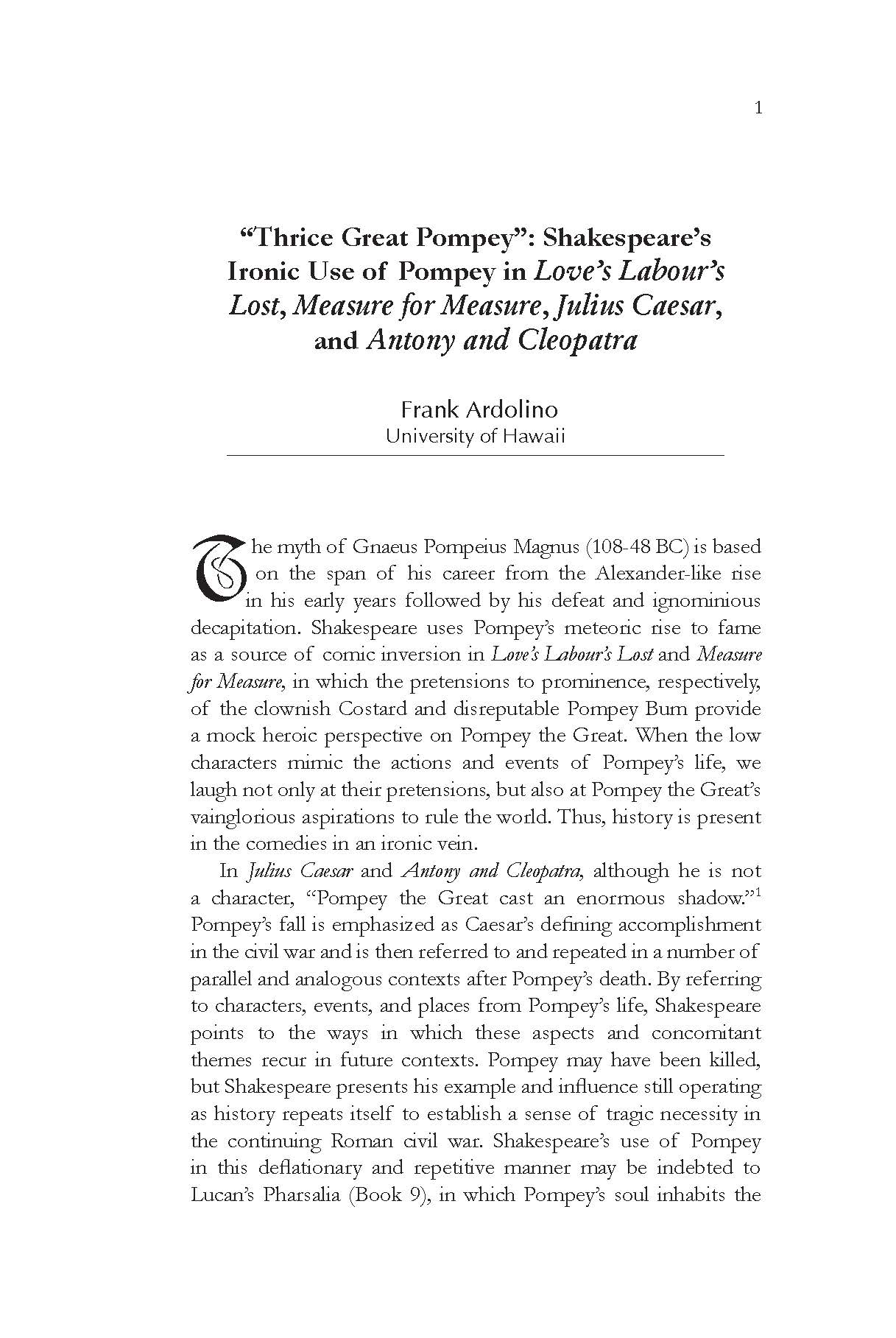“Thrice Great Pompey”: Shakespeare’s Ironic Use of Pompey in Love’s Labour’s Lost, Measure for Measure, Julius Caesar, and Antony and Cleopatra
Main Article Content
Abstract
The myth of Gnaeus Pompeius Magnus (108-48 BC) is based on the span of his career from the Alexander-like rise in his early years followed by his defeat and ignominious decapitation. Shakespeare uses Pompey’s meteoric rise to fame as a source of comic inversion in Love’s Labour’s Lost and Measure for Measure, in which the pretensions to prominence, respectively, of the clownish Costard and disreputable Pompey Bum provide a mock heroic perspective on Pompey the Great. When the low characters mimic the actions and events of Pompey’s life, we laugh not only at their pretensions, but also at Pompey the Great’s vainglorious aspirations to rule the world. Thus, history is present in the comedies in an ironic vein.
Article Details
Section
Articles
